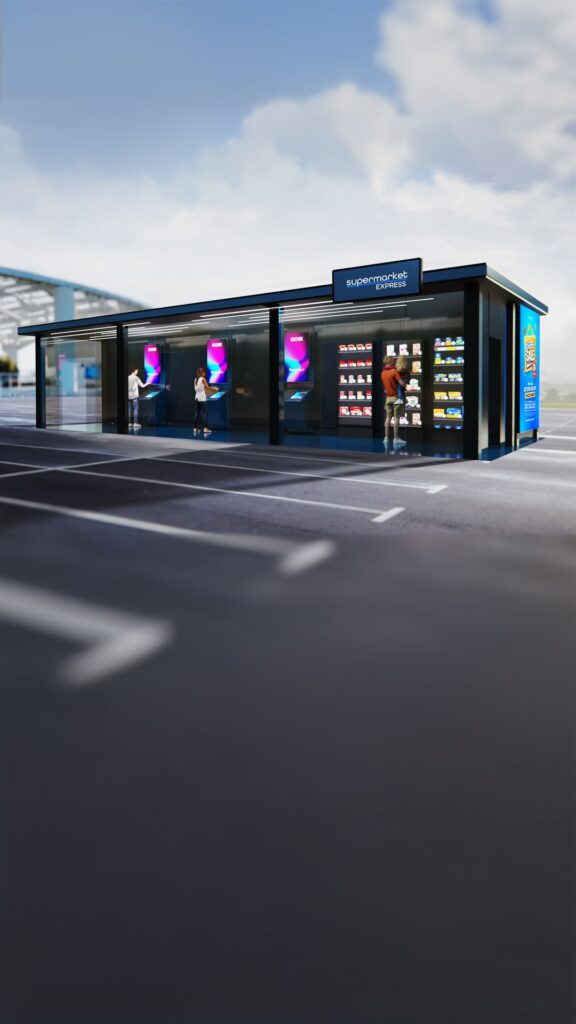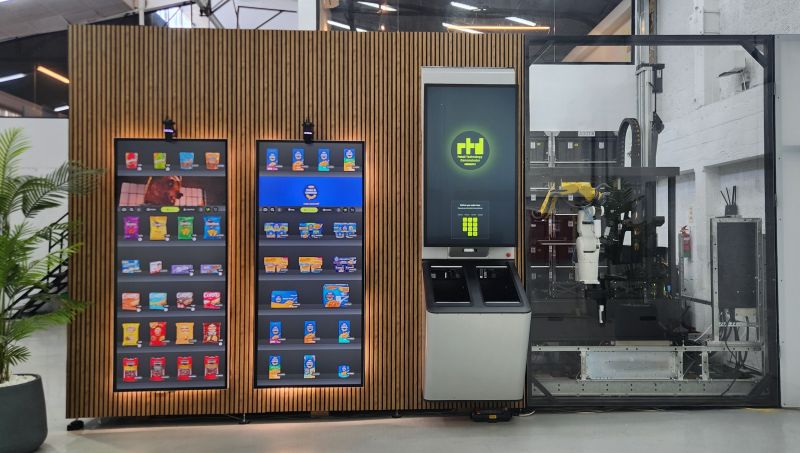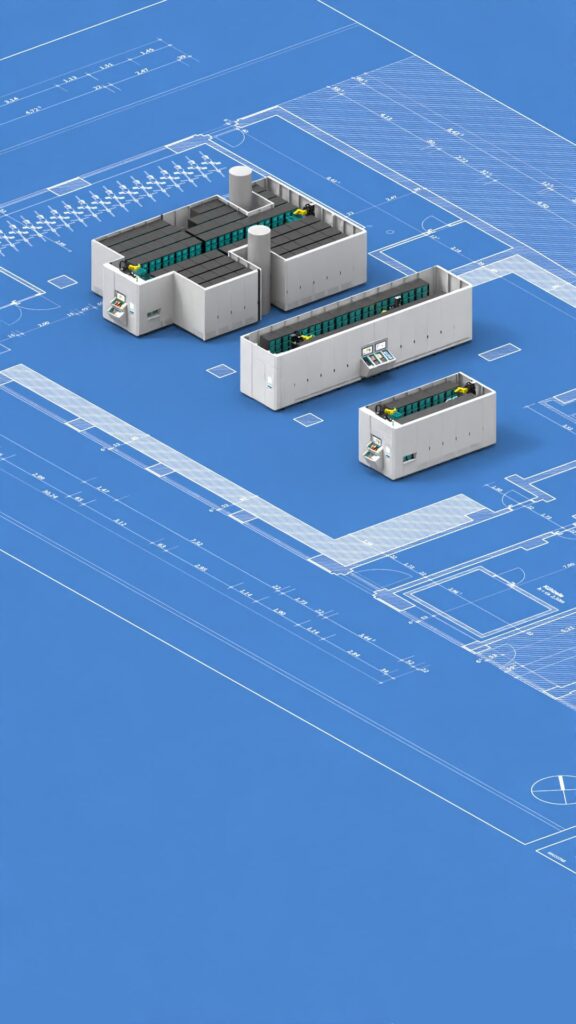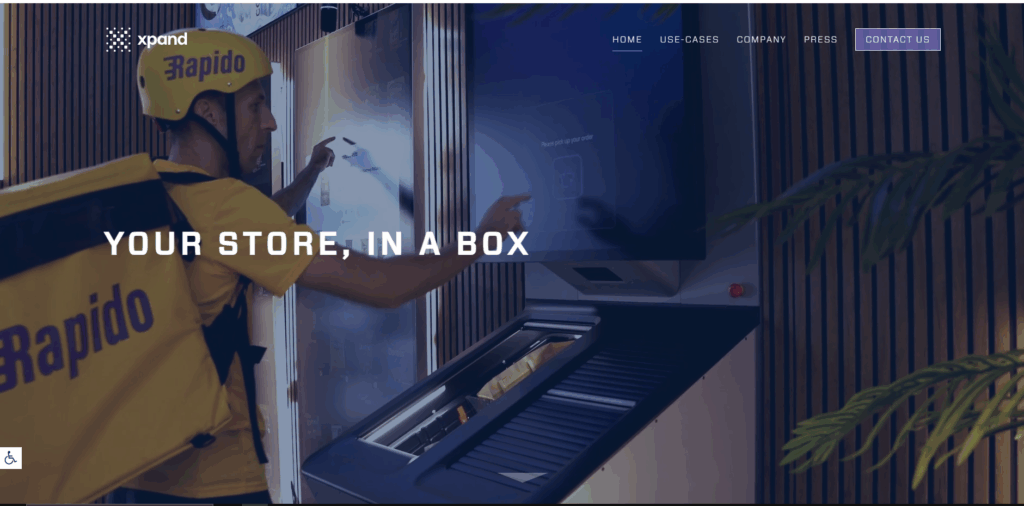Empower Your Business With The Magic Of Machine Learning!
- +30 210 9701777
- Aristotelous 83, Athens 163 43
- contact@mobiplus.co
Empower Your Business With The Magic Of Machine Learning!

The retail industry has been rapidly evolving over the past few decades, but it is now facing challenges that demand innovation and flexibility.
From the increasing pressure to streamline operations to the growing demand for more convenient shopping experiences, retailers are searching for solutions that meet the needs of today’s digital-first consumers.
Unmanned retail stores—stores that operate without the need for human staff—have emerged as a viable solution. These stores leverage technologies like AI, contactless payment systems, smart shelving, and automated inventory management to offer a seamless shopping experience.
They allow customers to shop 24/7, purchase products without waiting in line, and access a wide range of products with minimal human interaction.

However, despite the convenience and efficiency these unmanned stores offer, there are still several challenges that businesses need to address. Some of the key problems in the retail space today include:
In this post, we will explore how unmanned stores, powered by cutting-edge technologies, can address these challenges. Additionally, we will dive deep into use cases that demonstrate the potential of unmanned stores in high-traffic areas, such as hospitals, student housing, and marinas, where high convenience and accessibility are paramount.
The Solution: How Unmanned Retail Stores Solve Modern Retail Problems
Unmanned retail stores combine several advanced technologies to create a fully automated, cashless, and highly efficient shopping experience.
These technologies include:
By combining all of these technologies, unmanned stores are able to offer businesses cost savings, operational efficiency, and improved customer satisfaction.

Unmanned stores are not just a futuristic idea; they are already being implemented across various sectors. Below are six key use cases where unmanned retail stores have proven to be highly effective.
1. Business Districts (e.g., Marousi Ring in Athens)
Business districts, such as the Marousi Ring in Athens, are bustling with workers who often need quick access to essential products throughout the day. An unmanned store can cater to this demographic by providing easy access to snacks, drinks, office supplies, and small electronics—24/7.
The problem: In high-traffic areas like Marousi, employees are often too busy to visit traditional stores during lunch breaks or before work. The need for quick, accessible products is a growing demand.
The solution: Unmanned stores can be placed in strategic locations within business districts. With 24/7 operation and no staff required, these stores provide a convenient, fast shopping option for busy professionals. Workers can grab their lunch, purchase office supplies, or even pick up a quick gift while on the go.
2. Port Areas (e.g., Piraeus OLP)
Port areas, such as Piraeus OLP (the Port of Piraeus), serve a diverse population, including port workers, tourists, and boaters. These areas see a large flow of people, many of whom need to restock on items like drinks, snacks, fresh produce, and boating supplies.
The problem: Workers and tourists at port areas may not always have the time or convenience to visit traditional stores. The area can be crowded, and many stores close early, limiting options for people who need to shop after hours or during their breaks.

The solution: Unmanned stores are ideal in these high-traffic, 24/7 environments. They offer everything from snacks and beverages to boating essentials without the need for employees to oversee operations. Customers can also access high-demand items on-demand, making shopping quick and convenient.

3. Hospitals
Hospitals are one of the busiest places, filled with staff, patients, and visitors who need immediate access to food, drinks, medicine, and personal care products. Hospitals operate 24/7, making the traditional store model inefficient.
The problem: Visitors and hospital staff may have limited access to food and necessities during night shifts or weekends. Hospital cafeterias often close early, leaving only vending machines available.
The solution: An unmanned store at a hospital can cater to staff, patients, and visitors by offering a variety of snacks, fresh food, medications, personal hygiene products, and even gifts for patients. With 24/7 access, customers can purchase whatever they need at any time, providing a much-needed convenience.

4. Student Housing Areas
As student housing areas continue to grow, the demand for 24/7 access to food, drinks, and other essentials increases. Students living in these areas often struggle with finding quick access to basic goods, especially outside traditional store hours.
The problem: Students in university housing may have irregular schedules, and many need to pick up essentials at odd hours. Traditional stores may not cater to these needs.
The solution: Unmanned stores located near student housing areas can provide round-the-clock access to snacks, drinks, school supplies, and health products. By reducing the need to travel long distances, these stores can significantly improve the convenience for students, allowing them to shop at their own pace.
5. Airports
Airports are dynamic, high-traffic environments where travelers and airport staff often need quick access to snacks, drinks, personal care items, and travel accessories. Traditional retail stores at airports may have high overheads due to staff costs, especially in late hours when traffic is low.
The problem: Airports experience fluctuating traffic patterns, and traditional stores may struggle to provide services during off-peak hours or when queues are long.
The solution: Unmanned stores can be set up in high-traffic areas of the airport, offering quick-service and contactless shopping for passengers. With AI-powered systems that ensure availability of items and seamless checkouts, these stores meet the demand for both convenience and speed.
6. Marinas
Marinas, where boaters dock and prepare for trips, often require quick access to groceries, fuel, drinks, snacks, and boat accessories.
The problem: Marinas are often located in remote or tourist-heavy areas where traditional stores may have limited operating hours or are far from the marina.
The solution: Unmanned stores can be deployed at marinas to offer boaters quick access to products like food, beverages, fresh produce, fuel, and marine equipment. These stores can operate 24/7, allowing boaters to shop at their convenience.
The adoption of unmanned retail stores brings a myriad of benefits to both businesses and customers:
Read our book and learn why instore personalization and shopping data is the name of the game.

As unmanned stores continue to evolve, technologies like Mobiplus AI offer advanced solutions to personalize the shopping experience. By leveraging AI and machine learning, Mobiplus provides retailers with powerful tools to analyze customer behavior, deliver tailored product recommendations, and enhance the overall shopping experience.

Incorporating personalization in an unmanned store allows businesses to:
With Mobiplus AI,and Xpand unmanned stores can go beyond simple transaction-based shopping and transform into a personalized shopping experience that customers will appreciate, ensuring repeat visits.
Unmanned stores are not just a futuristic concept—they are a practical solution for businesses looking to improve efficiency, reduce costs, and provide customers with a seamless shopping experience. From high-traffic areas like Marousi to Piraeus, hospitals, student housing, and marinas, unmanned stores offer convenience, accessibility, and personalization.
With Mobiplus AI and Xpand leading the charge in personalization and unmanned stores, businesses can elevate their unmanned store offerings, driving customer satisfaction and maximizing profitability. The future of retail is automated, and it’s time to embrace it.

Test out the Recommendation Engine for up to 20.000 euros in revenue from recommendations. No credit card required. Just enter your company information and we’ll contact you with all the details.